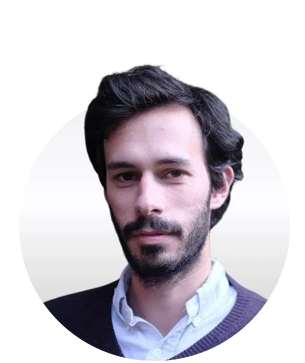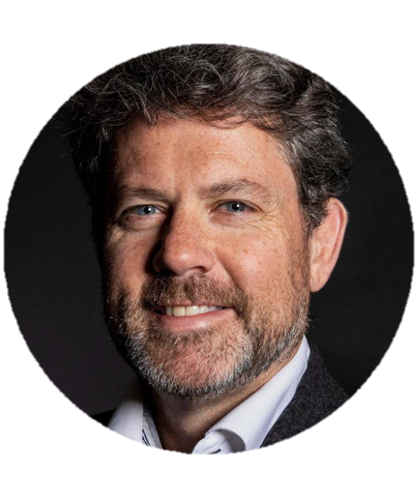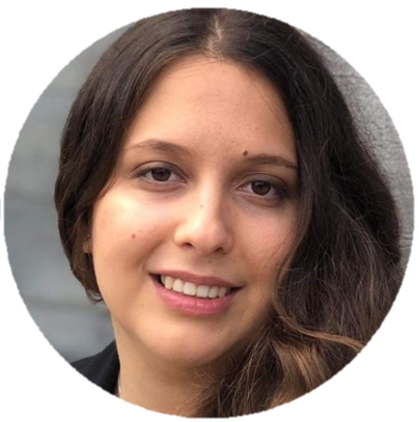


Victoria is an experienced analyst and researcher, and has previously worked for the BBC, the UK public sector and as a non-Resident Senior Research Analyst at the Carnegie Endowment for International Peace’s Partnership for Countering Influence Operations. Her recent work has focussed on the challenges faced by the community countering influence operations, and developing guidance on how to study, report on and attribute influence operations. In 2022, Victoria founded DisinfoDocket - a newsletter curating influence-operation related news, academic research, events and jobs.

Stephen H. Campbell specializes in researching and defending against asymmetric cyber, cognitive, and physical threats. As founder of Non-State Threat Intelligence, advisor to Eosedge Legal, and lead social media threat hunter for Sports-ISAO, he encourages clients to take an intelligence-led approach toward assessing and mitigating the risk of cyberattacks, digital manipulation, and violent extremism. Stephen has a combined 40 years’ experience in the fields of information technology and international security studies, as a programmer, analyst, product manager, trainer, researcher, curriculum developer, and virtual CISO. He is the inventor of the patented CyberGaps® methodology for identifying, prioritizing and remediating gaps in an organization’s cyber defenses.

Carl Miller is a technologist, journalist and writer. He is the founder of the Centre for the Analysis of Social Media at Demos and the information integrity lab CASM Technology. He’s a Visiting Fellow at the Department of War Studies, King’s College London, a Senior Fellow at the Institute for Strategic Dialogue and a Senior Research Fellow at RAND Europe. He is the author of the The Death of the Gods: The New Global Power Grab which won the Transmission Prize, and is the co-writer and host of the podcast Kill List, which reached #1 in seven countries, was named the Guardian’s best podcast of 2024 and is nominated for Podcast of the Year 2025 by the Broadcast Press Guild Awards.

With more than a decade of experience at the intersection of digital policy, democratic resilience, and platform governance, Chris Beall is DISARM’s Chief Relationship Officer, leading global partnerships, strategic engagement, and ecosystem development to connect governments, civil society, researchers, and technology partners around shared standards, taxonomies, and coordination frameworks. Chris also leads Project CONNIE (Coordination & Open Networking Needs for the Information Environment), serves as a Senior Fellow at the Montreal Institute for Global Security (MIGS) and regularly advises governments, multilateral organizations, and philanthropic funders on information-integrity strategy, capacity-building, and governance models.

Jon has wide experience across the UK public sector, NGOs, social enterprises and B2B tech start-ups and larger scale commercial enterprises. He has led sales, marketing, partnership, channel and fundraising teams, as well as projects to improve corporate systems and processes. He has co-founded charities, helping nonprofits improve their effectiveness through technology. Way back at the start, Jon’s MA Marketing dissertation centered on ‘Public Purpose Marketing’ and cross-sector collaboration, and he has extended this theme throughout his working life – including previously as Development Director at the Global Cyber Alliance, and now with the DISARM Foundation.

Adam is a real human person who doesn't like it when people try to manipulate others. During COVID lockdowns, Adam combined their background in Psychology and experience in the Cyber Threat Intelligence industry to analyze and archive techniques used in influence operations, with the goal of helping people better understand how they were being manipulated online. Adam prioritizes clarity, authenticity and accessibility in their work, and likes to help protect people from online harms in whatever way possible.

Julian works with DISARM as a Dissemination and Defence Lead and further develops the framework of online influence tactics, techniques, and procedures to develop defensive measures. He has trained over 75 organizations ranging from government, academic and civil society actors. He previously developed media literacy tools and has several research publications on online influence in outlets like Scientific Reports and World Medical & Health Policy.

Magdalene is an influence operations analyst and policy researcher with expertise in information manipulation, digital accountability, open-source intelligence, and Russian hybrid threats. She has experience working across government projects, election monitoring initiatives, and specialised task forces. Her work bridges research, intelligence, and operational responses, including framework development and tabletop simulations in multicultural environments. Magdalene speaks five languages and has published research, delivered workshops and contributed to policy and conference discussions on how social media is weaponised in modern conflict.